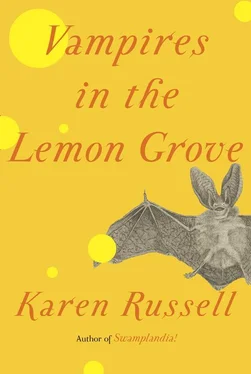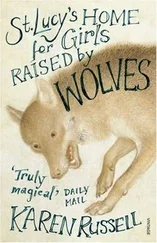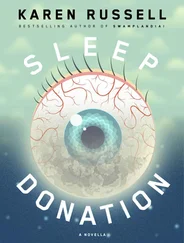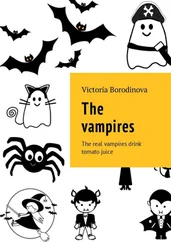“What are you grinning at?” Nal muttered. As if in response, the gull spread its wings and opened its shadow over the miniature ruins of the castle — too huge, Nal thought, and vaguely humanoid in shape — and then it flew off, laboring heavily against the wind. In the soft moonlight this created the disturbing illusion that the bird had hitched itself to Nal’s shadow and was pulling his darkness from him.
NAL WASN’T SUPPOSED to be in town that summer. He had been accepted to LMASS, the Lake Marion Achievement Summer Seminars: a six-week precollege program for the top three percent of the country’s high school students. It was a big deal — seniors who completed all four summers of the program were automatically admitted to Lake Marion College with a full scholarship package. “Cream Rises” was the camp’s motto; their mascot was an oblong custard-looking thing, the spumy top layer of which Nal guessed was meant to represent the gifted. In March a yellow T-shirt with this logo had arrived in the mail, bundled in with his acceptance letter. Nal tried to imagine a hundred kids wearing the same shirt in the Lake Marion dormitories, kids with overbites and cowlicks and shy, squint-eyed ambitions — LMASS! he thought, a kind of heaven. Had he worn the shirt with the custard-thing to his own school, it would have been a request for a punch in the mouth.
But then one day his mom came home from work and said she was being scapegoated by the Paradise Nursing Facility for what management was calling “a distressing oversight.” Her superiors recommended that she not return to work. But for almost two weeks Nal’s mother would set her alarm for five o’clock, suit up, take the number 14 bus to Paradise. Only after she was officially terminated did she file for unemployment, and so far as Nal could tell this was the last real action she had taken; she’d been on their couch for three months now and counting. Gradually she began to lose her old habits, as if these, too, were a uniform that she could slip out of: she stopped cooking entirely, slept at odd hours, mummied herself in blankets in front of their TV. What was she waiting for? There was something maddening about her posture — the way she sat there with one ear cocked sideways as if listening for a break in the weather. Nal had been forced to forfeit his deposit at Lake Marion and interview for a job behind the register at Penny’s Grocery. He took a pen to the Help Wanted ads and papered their fridge with them. This was back in April, when he’d still believed his mom might find another job in time to pay the Lake Marion fee.
“Mom, just look at these, okay?” he’d shout above the surf roar of their TV. “I circled the good ones in green.” She’d explain again without looking over that the whole town was against her. Nobody was going to hire Claire Wilson now . All these changes came about as the result of a single failed mainstay. The windows at Paradise were supposed to be fitted with a stop screw, to prevent what the Paradise manual euphemistically referred to as “elopement.” Jailbreak was another word for this, suicide, accidental defenestration — as Nal’s mom put it, many of the residents were forty-eight cards to a deck and couldn’t be trusted with their own lives. With the stop screws in place, no window opened more than six inches. But as it happened, a stop screw was missing from a sixth-floor window — one of the hundred-plus windows in Paradise — an oversight that was discovered when a ninety-two-year-old resident shoved it open to have a smoke. A visitor found the old woman leaning halfway out the window and drew her back inside the frame. The visitor described the “near fatal incident” to Nal’s mother while the “victim” plucked ash from her tongue. According to Nal’s mom, the Paradise administrators came to the sudden agreement that it had always been Claire Wilson’s responsibility to check the window locks. She came home that night babbling insincere threats: “They try to pin this on me, boys, you watch, I will quit in a heartbeat.” But then the resident’s daughter wrote a series of histrionic letters to the newspaper, and the sleepy Athertown news station decided to do an “exposé” of Paradise, modeled on the American networks, complete with a square-jawed black actress to play the role of Nal’s mother.
Only Nal had watched the dramatization through to its ending. They’d staged a simulation of a six-story fall using a flour sack dummy, the sack splitting open on the gates and spilling flour everywhere, powdering the inscrutable faces of the stone angels in the garden below. Lawsuits were filed, and, in the ensuing din of threats and accusations, Nal’s mother was let go.
Nal had expected his mom to react to this with a froth and vengeance that at least matched his own, perhaps even file a legal action. But she returned home from her final day at work exhausted. Her superiors had bullied her into a defeated sort of gratitude: “They said it was my job, who knows? I’m not perfect. I’m just glad they caught the problem when they did,” she kept saying.
“Quit talking like that!” Nal moaned. “It wasn’t your fault, Mom. You’ve been brainwashed by these people. Don’t be such a pushover.”
“A pushover!” she said. “Who’s pushing me over? I know it wasn’t my fault, Nal. I can’t be grateful that nobody got killed?” She described the “averted tragedy” in the canned language of the Paradise directors: the chance of one of her charges flailing backward out the window and onto the gate’s tiny spears. In her dreams the victim wasn’t a flour sack dummy but a body with no face, impaled on the spikes.
“That’s your body, Ma!” Nal cried. “That’s you!” But she didn’t see it that way.
“Let’s just be thankful nobody was hurt,” she mumbled.
Nal didn’t want his mom to relinquish her first fury. “How can you say that? They fired you, Mom! Now everything’s … off course.”
His mom stroked a blue curl of Nal’s hair and gave him a tired smile. “Ooh, we’re off course, right. I forgot. And what course was that?”
Nal picked up more shifts at the grocery store. He ran eggs and pork tenderloins down the register, the scanner catching his knuckles in a web of red light. Time felt heavy inside Penny’s. Beep! he whimpered along with the machine, swiping a tin of tomatoes. Beep! Sometimes he could still feel the progress of his lost future inside him, the summer at Lake Marion piping like a vacant bubble through his blood.
“Mom, can I still go away to college, though?” he asked her one Sunday, when they were sitting in the aquarium light of the TV. He’d felt the bubble swell to an unbearable pressure in his lungs. “Sure,” she said, not looking over from the TV. Her eyes were like Samson’s, bright splashes of blue in an oak-stained face. “You can do whatever you want.”
When the bubble in him would burst, Nal would try to start a fight. He shouted that what she called his “choices” about college and LMASS and Penny’s Grocery were her consequences, a domino run of misfortune. He told her that he wouldn’t be able to go to college if she didn’t find another job, that it was lying to pretend he could.
“I heard you guys going at it,” Samson said later in the kitchen, clapping mayonnaise onto two slices of bread. “Give Mom a break, kid. I think she’s sick.”
But Nal didn’t think that his mom had contracted any particular illness — he was terrified that she was more generally dying, or disintegrating, letting her white roots grow out and fusing her spine to their couch. She was still sitting in front of the TV with the shades drawn when he got off his shift at six thirty.
Nal wrote a poem about how his mother had become the sea hum inside the conch shell of their living room. He thought it must be the best poem he’d ever written because he tried to recite it to his bathroom reflection and his throat shut, and his eyes stung so badly he could barely see his own face. She was sitting out there now, watching TV reruns and muttering under her breath. Samson was out drinking that night with Vanessa. Nal gave his mother the poem to read and found it under a dirty mug, accumulating rings, when he came back to check on her that Friday.
Читать дальше












